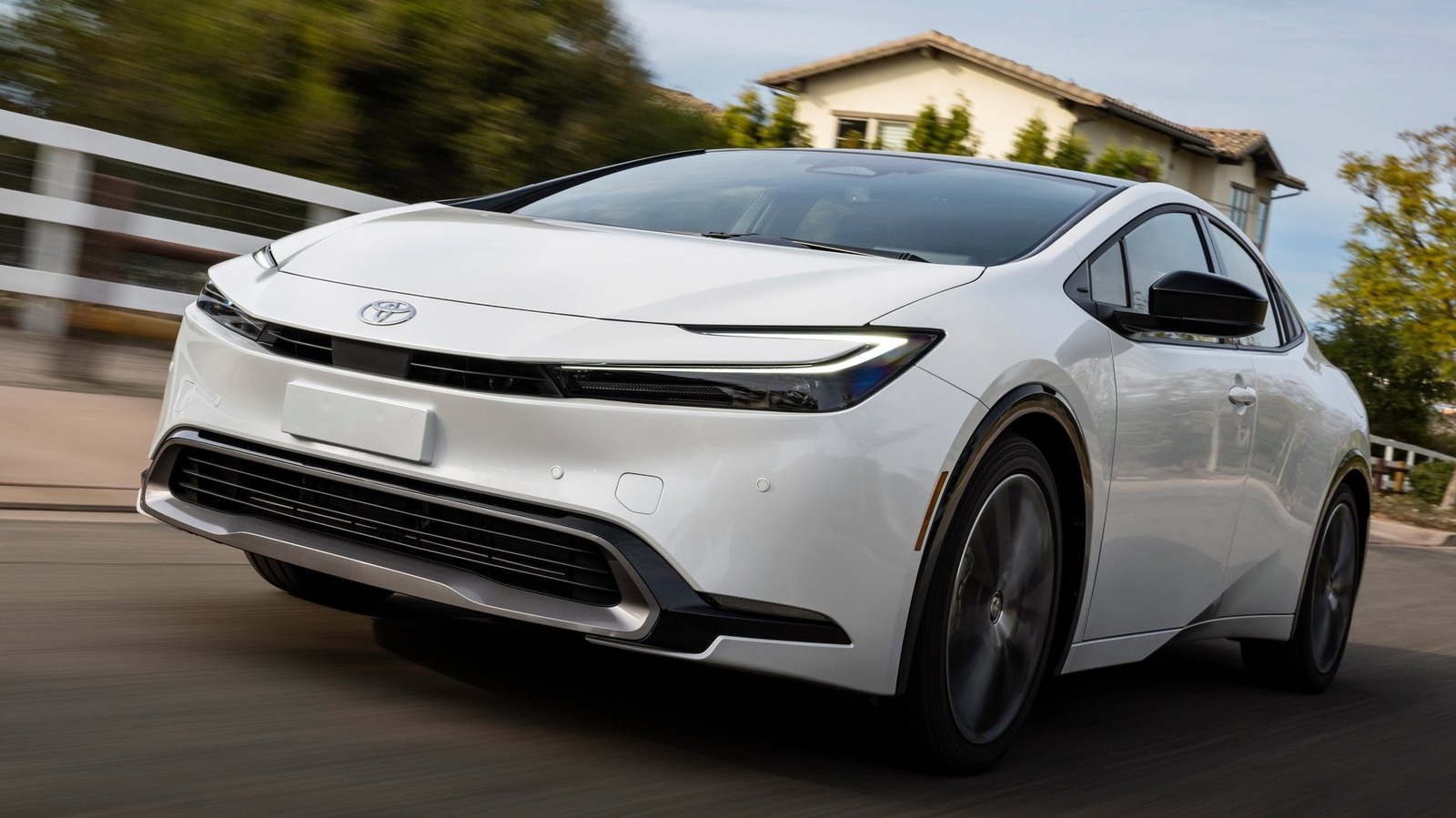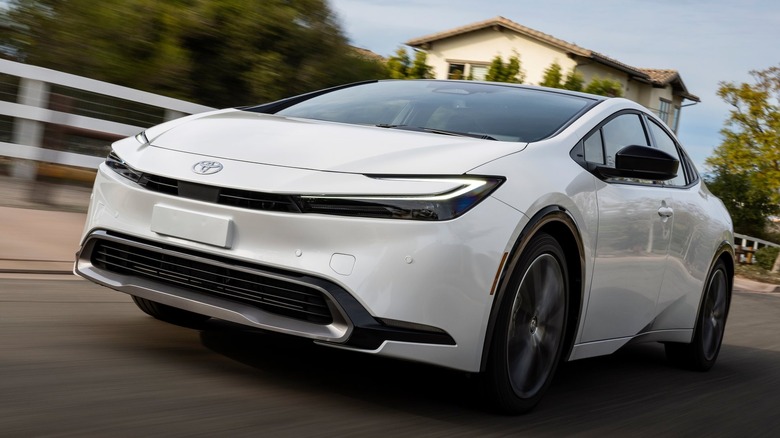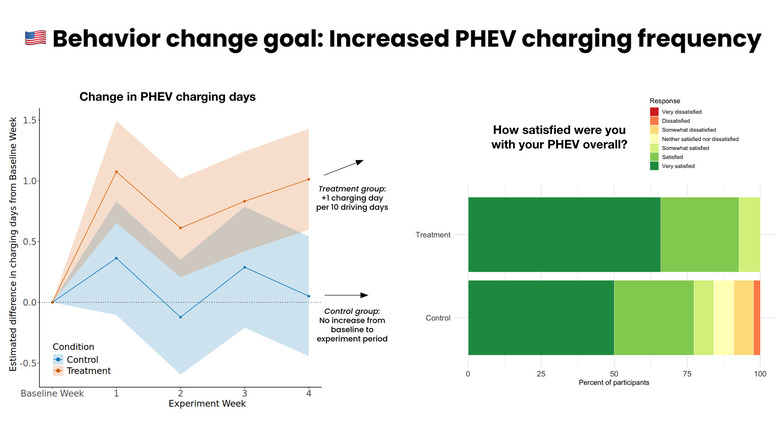Plug-in hybrids are pretty great on paper. They usually offer enough range to handle most of your daily driving on battery power alone, but they still have an engine that can kick in on longer drives and get fantastic gas mileage. The problem is, you have to actually charge them regularly to get those benefits, and PHEV owners don’t always do that. If an automaker wants owners to actually use the battery they bought, how do they do that? Well, in Toyota’s case, they used a bunch of behavioral scientists to build an app to hack people’s brains.
According to Toyota, the ChargeMinder app “integrates more than a dozen interventions based on well-replicated findings from behavioral science research that have been tailored for specific charging behavior change goals.” Basically, it takes user data, such as vehicle telematics and charging locations, and then it makes recommendations to help owners get the most out of their PHEV. That includes reminders to plug your car in when you get home, a feature Toyota says is 50% more effective than generic charging prompts.
The app also focuses on gamifying the PHEV ownership experience, using streaks, summaries and “encouraging messages” to get owners’ brains hooked on the dopamine hit from, for example, keeping their charging streak going. It also “[surfaces] engaging educational quizzes that leverage memory science to enhance learning.” Is it a little cheesy? Sure, but if it works, who cares? Owners get better fuel economy out of their PHEVs, and less pollution means cleaner air for everyone else.
Encouraging results
“Technology is not the only way to reduce emissions — people’s choices matter too,” Dr. Gill Pratt, Chief Scientist for Toyota Motor Corporation and CEO, Toyota Research Institute, said in a statement. “This research and development shows how science-based behavioral interventions can both help us reduce carbon emissions as much as possible, as soon as possible, and increase customer satisfaction.”
To evaluate the effectiveness of a personalized app, the Toyota Research Institute conducted studies in both Japan and the U.S. And while some results were more impressive than others, the app did help move things in the right direction. For example, in Japan, they were able to improve the number of PHEV and EV owners charging at peak renewable energy hours by 59%, and in the U.S., the app increased PHEV owner satisfaction by 16 percentage points, bringing satisfaction to 100%. On the other hand, using the app only increased PHEV charging by 10%.
It would have been great to see a bigger increase in how often U.S. PHEV owners charged their cars, but an improvement is still an improvement. And as Dr. Laura Libby, Manager, Carbon Neutrality, Human Centered Artificial Intelligence, Toyota Research Institute, pointed out, “Research in behavioral science shows that small, targeted interventions can have a large impact on people’s decisions and actions. Furthermore, compared to other causes of behavior change such as public charging infrastructure initiatives and consumer financial incentives, behavioral interventions are inexpensive and can be deployed quickly.”




